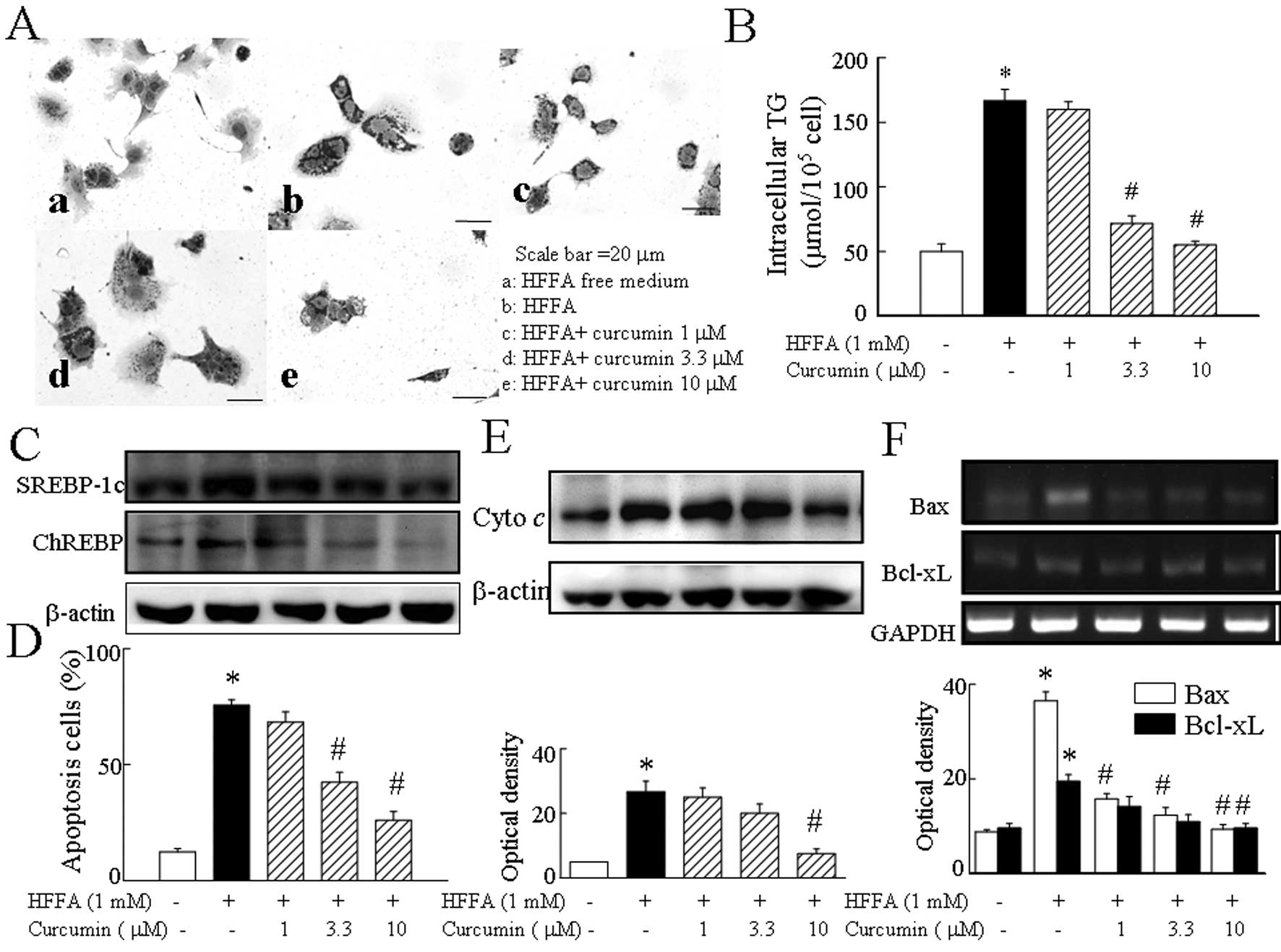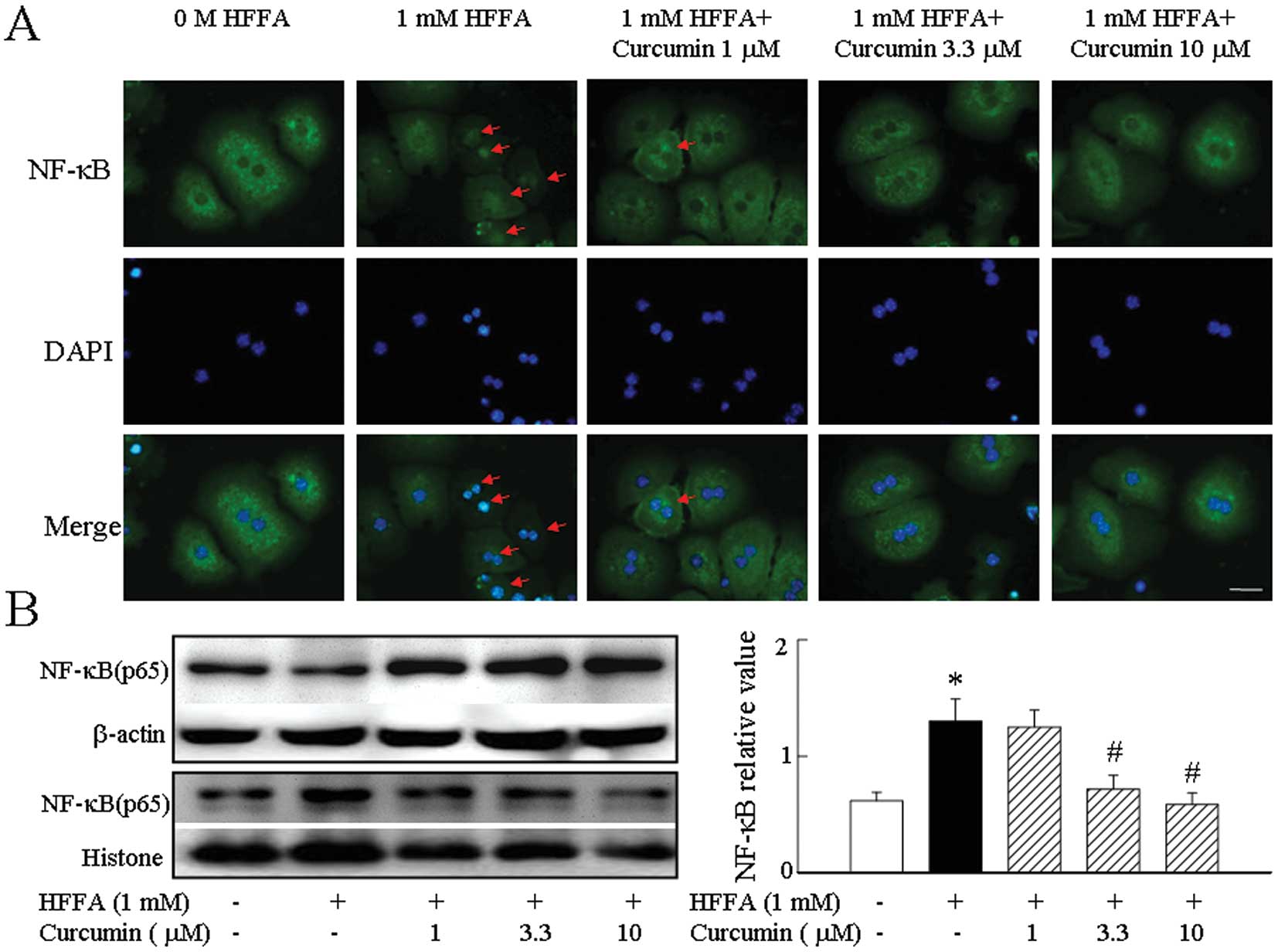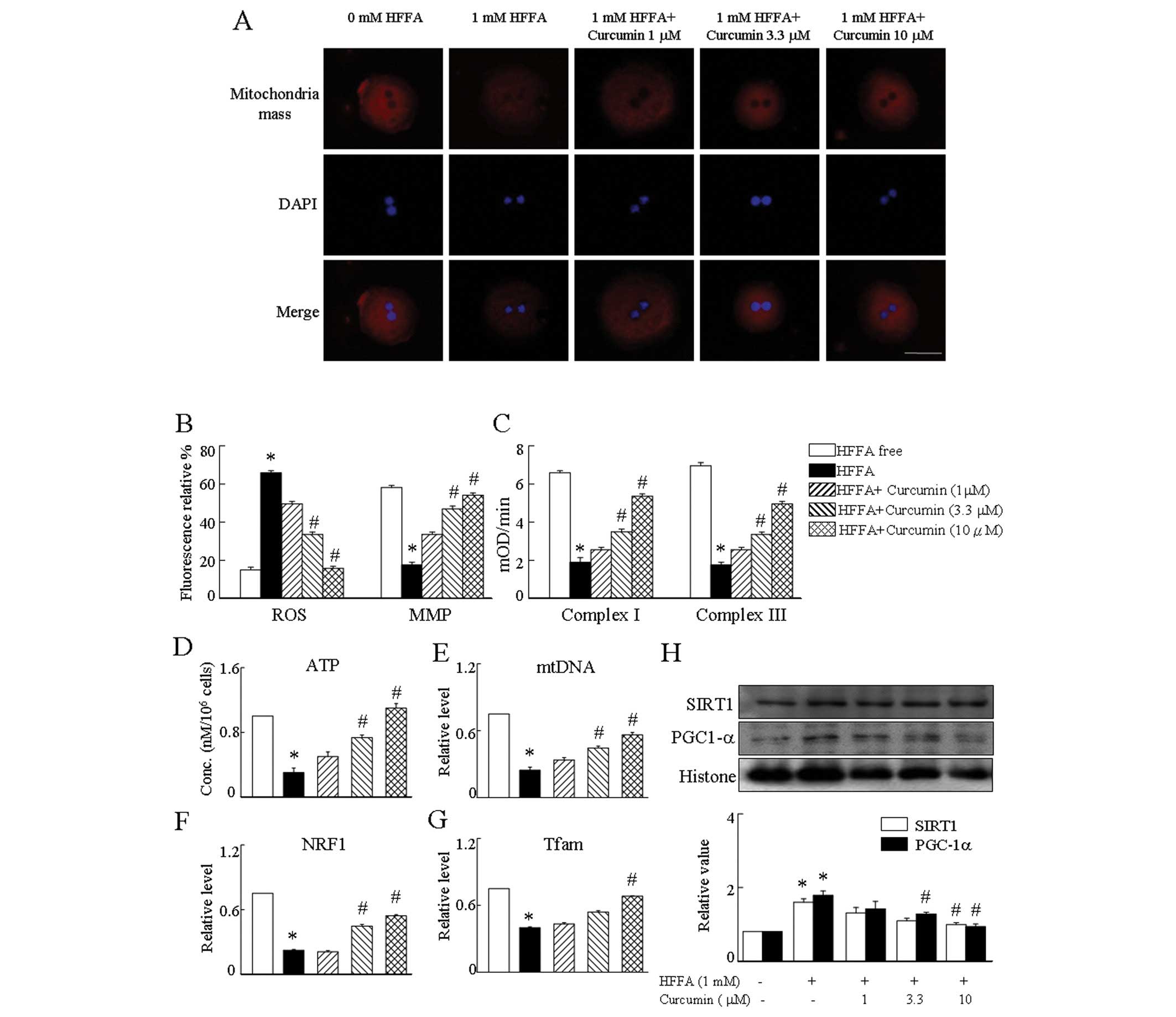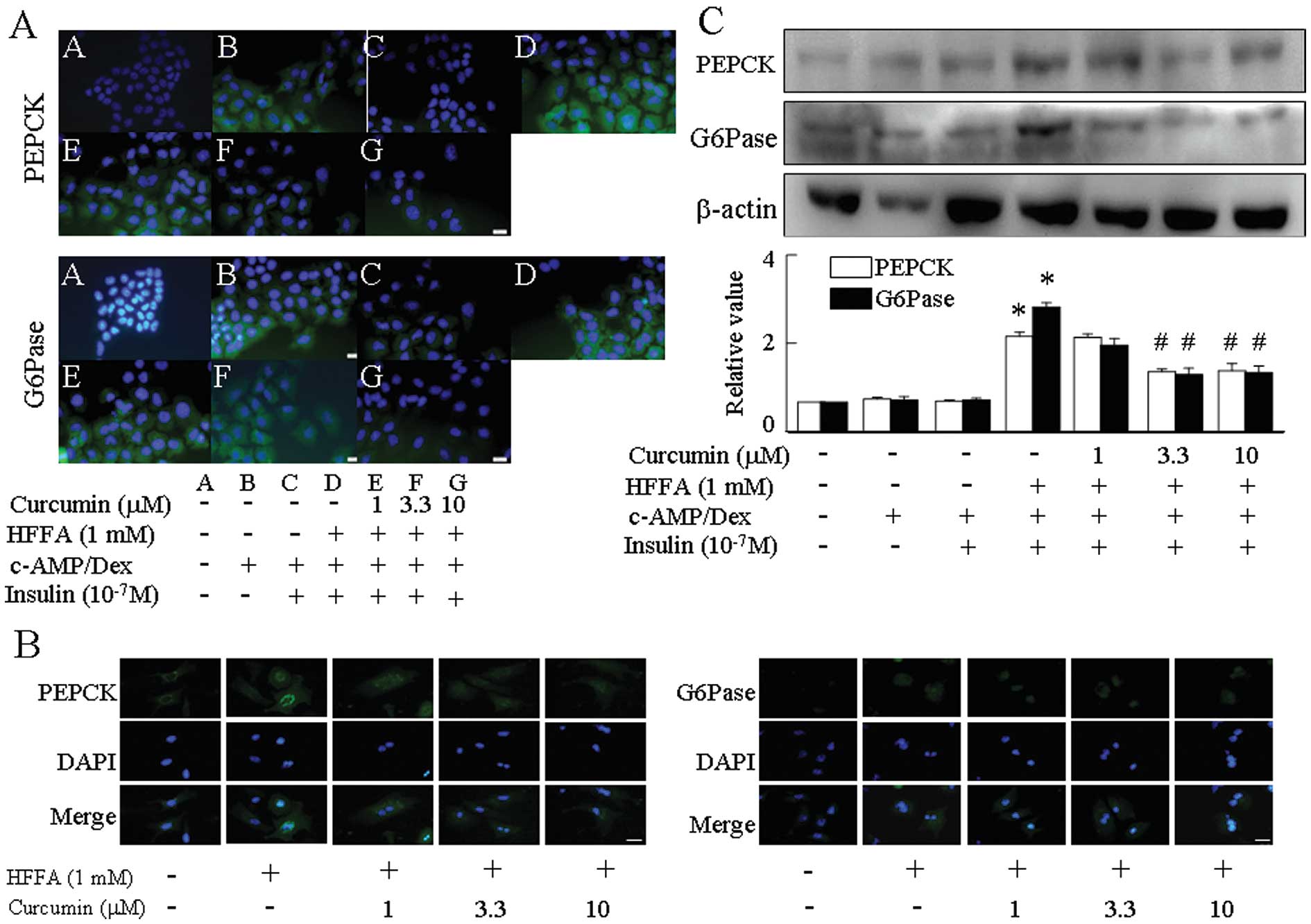|
1.
|
AE FeldsteinA CanbayME GuicciardiH
HiguchiSF BronkGJ GoresDiet associated hepatic steatosis sensitizes
to Fas mediated liver injury in miceJ
Hepatol39978983200310.1016/S0168-8278(03)00460-414642615
|
|
2.
|
AE FeldsteinA CanbayP AnguloM TaniaiLJ
BurgartKD LindorGJ GoresHepatocyte apoptosis and fas expression are
prominent features of human nonalcoholic
steatohepatitisGastroenterology125437443200310.1016/S0016-5085(03)00907-712891546
|
|
3.
|
SK MantenaDP VaughnKK AndringaHigh fat
diet induces dysregulation of hepatic oxygen gradients and
mitochondrial function in vivoBiochem
J417183193200910.1042/BJ2008086818752470
|
|
4.
|
MS RaoJK ReddyPPARalpha in the
pathogenesis of fatty liver
diseaseHepatology40783786200410.1002/hep.2045315382158
|
|
5.
|
MA O’ConnellSA RushworthCurcumin:
potential for hepatic fibrosis therapyBr J
Pharmacol1534034052008
|
|
6.
|
Y FuS ZhengJ LinJ RyerseA ChenCurcumin
protects the rat liver from CCl4-caused injury and
fibrogenesis by attenuating oxidative stress and suppressing
inflammationMol Pharmacol73399409200818006644
|
|
7.
|
S ZhengA ChenCurcumin suppresses the
expression of extracellular matrix genes in activated hepatic
stellate cells by inhibiting gene expression of connective tissue
growth factorAm J Physiol Gastrointest Liver
Physiol290G883G893200610.1152/ajpgi.00450.2005
|
|
8.
|
Y TangS ZhengA ChenCurcumin eliminates
leptin’s effects on hepatic stellate cell activation via
interrupting leptin signalingEndocrinology150301130202009
|
|
9.
|
AC BhartiY TakadaBB AggarwalCurcumin
(diferuloylmethane) inhibits receptor activator of NF-kappa B
ligand-induced NF-kappa B activation in osteoclast precursors and
suppresses osteoclastogenesisJ
Immunol17259405947200410.4049/jimmunol.172.10.5940
|
|
10.
|
BE BachmeierIV MohrenzV MirisolaCurcumin
downregulates the inflammatory cytokines CXCL1 and -2 in breast
cancer cells via
NFkappaBCarcinogenesis29779789200810.1093/carcin/bgm24817999991
|
|
11.
|
SL WangY LiY WenYF ChenLX NaST LiCH
SunCurcumin, a potential inhibitor of up-regulation of TNF-alpha
and IL-6 induced by palmitate in 3T3-L1 adipocytes through
NF-kappaB and JNK pathwayBiomed Environ
Sci223239200910.1016/S0895-3988(09)60019-219462685
|
|
12.
|
TY LeeFY ChenHH ChangHC LinThe effect of
capillarisin on glycochenodeoxycholic acid-induced apoptosis and
heme oxygenase-1 in rat primary hepatocytesMol Cell
Biochem3255359200910.1007/s11010-008-0019-819132499
|
|
13.
|
R KohliX PanP MalladiMS WainwrightPF
WhitingtonMitochondrial reactive oxygen species signal hepatocyte
steatosis by regulating the phosphatidylinositol 3-kinase cell
survival pathwayJ Biol
Chem2822132721336200710.1074/jbc.M70175920017540768
|
|
14.
|
J FolchM LeesGH Sloane StanleyA simple
method for the isolation and purification of total lipides from
animal tissuesJ Biol Chem226497509195713428781
|
|
15.
|
L TedescoA ValerioC CervinoCannabinoid
type 1 receptor blockade promotes mitochondrial biogenesis through
endothelial nitric oxide synthase expression in white
adipocytesDiabetes5720282036200810.2337/db07-1623
|
|
16.
|
L TedescoA ValerioM DossenaCannabinoid
receptor stimulation impairs mitochondrial biogenesis in mouse
white adipose tissue, muscle, and liver: the role of eNOS, p38
MAPK, and AMPK pathwaysDiabetes5928262836201010.2337/db09-1881
|
|
17.
|
R GonzálezG FerrínAB
HidalgoN-acetylcysteine, coenzyme Q10 and superoxide dismutase
mimetic prevent mitochondrial cell dysfunction and cell death
induced by d-galactosamine in primary culture of human
hepatocytesChem Biol Interact18195106200919523936
|
|
18.
|
JE SchafferLipotoxicity: when tissues
overeatCurr Opin
Lipidol14281287200310.1097/00041433-200306000-0000812840659
|
|
19.
|
Y WeiRS RectorJP ThyfaultJA
IbdahNonalcoholic fatty liver disease and mitochondrial
dysfunctionWorld J
Gastroenterol14193199200810.3748/wjg.14.19318186554
|
|
20.
|
T HirschI MarzoG KroemerRole of the
mitochondrial permeability transition pore in apoptosisBiosci
Rep176776199710.1023/A:10273394186839171922
|
|
21.
|
L LiL ChenL HuNuclear factor high-mobility
group box1 mediating the activation of Toll-like receptor 4
signaling in hepatocytes in the early stage of nonalcoholic fatty
liver disease in miceHepatology5416201630201110.1002/hep.24552
|
|
22.
|
SF LiuAB MalikNF-kappa B activation as a
pathological mechanism of septic shock and inflammationAm J Physiol
Lung Cell Mol
Physiol290L622L645200610.1152/ajplung.00477.200516531564
|
|
23.
|
P RafieeDG BinionM WellnerModulatory
effect of curcumin on survival of irradiated human intestinal
microvascular endothelial cells: role of Akt/mTOR and NF-kappaBAm J
Physiol Gastrointest Liver
Physiol298G865G877201010.1152/ajpgi.00339.200920299603
|
|
24.
|
D PessayreB FromentyNASH: a mitochondrial
diseaseJ Hepatol42928940200510.1016/j.jhep.2005.03.00415885365
|
|
25.
|
C DemeilliersC MaisonneuveA GrodetImpaired
adaptive resynthesis and prolonged depletion of hepatic
mitochondrial DNA after repeated alcohol binges in
miceGastroenterology12312781290200210.1053/gast.2002.3595212360488
|
|
26.
|
M Pérez-CarrerasP Del HoyoMA
MartínDefective hepatic mitochondrial respiratory chain in patients
with nonalcoholic
steatohepatitisHepatology389991007200314512887
|
|
27.
|
LA VidelaR RodrigoJ ArayaJ
PoniachikInsulin resistance and oxidative stress interdependency in
non-alcoholic fatty liver diseaseTrends Mol
Med12555558200610.1016/j.molmed.2006.10.00117049925
|
|
28.
|
EJ GallagherD LeroithE KarnieliInsulin
resistance in obesity as the underlying cause for the metabolic
syndromeMt Sinai J Med77511523201010.1002/msj.2021220960553
|
|
29.
|
J LinH WuPT TarrTranscriptional
co-activator PGC-1 alpha drives the formation of slow-twitch muscle
fibresNature15797801200210.1038/nature0090412181572
|
|
30.
|
SP WeisbergR LeibelDV TortorielloDietary
curcumin significantly improves obesity-associated inflammation and
diabetes in mouse models of
diabesityEndocrinology14935493558200810.1210/en.2008-026218403477
|
|
31.
|
T KimJ DavisAJ ZhangX HeST MathewsCurcumin
activates AMPK and suppresses gluconeogenic gene expression in
hepatoma cellsBiochem Biophys Res
Commun388377382200910.1016/j.bbrc.2009.08.01819665995
|


















